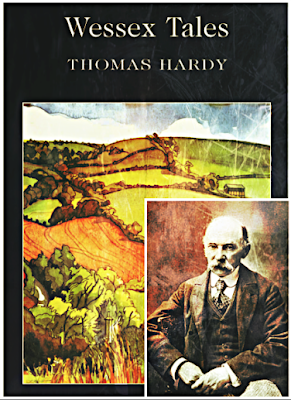 Synopsis:
Synopsis: Libby Day is the sole survivor of the horrific massacre which claimed the lives of her mother and two elder sisters. Serving a life sentence is older misfit brother Ben Day. A reserved 15 year old, rumoured to have been associated with a satanic 'gang' at the time, Ben has yet to deny his involvement in the murders.
Having lived off the charity and monetary good will of the sympathetic, Libby has forged herself a reclusive (although not a content) existence. With funds depleting, Libby reluctantly agrees to make a 'special appearance' for the 'Kill Club' - a group of unsolved murder 'super fans.' Libby is initially embittered and dismayed to realise that the club is campaigning for Ben's release, believing him to be an innocent scapegoat for the massacre.
In exchange for cash, Libby embarks on a grim trip down memory lane, revisiting those connected to the events surrounding the murders. Already a dubious witness to the crime for being so young and most likely having produced a heavily scripted testimony, Libby pieces together exactly what happened and why.
** This Post Contains Spoilers **
My lasting impressions of Flynn's work is that she establishes and deftly maintains a strong thread of suspense throughout her narratives. As with Gone Girl, 'Dark Places' switches the perspective with each chapter, alternating between present day Libby, a sardonic and far from well adjusted adult, and the past Ben and Patty Day - the family's pallid matriarch - on the fated day in question.
What is admirable in Flynn's storytelling is her ability to run the present and past at parallels. She creates a slow building climb through the past, as it crawls out of cloaked truths simultaneously to Libby's own recent discoveries. She has a tight grip on the narrative, able to scatter events and scraps of information across the two timelines to converge at a watertight conclusion.
What is admirable in Flynn's storytelling is her ability to run the present and past at parallels. She creates a slow building climb through the past, as it crawls out of cloaked truths simultaneously to Libby's own recent discoveries. She has a tight grip on the narrative, able to scatter events and scraps of information across the two timelines to converge at a watertight conclusion.
Ben possesses burgeoning resentment at what he feels to be the ever humiliating emasculation from living in a dilapidated, female dominated household. Ridiculed by his errant father for being effeminate, and constantly at pains from his mother to appease his sisters, Ben becomes quietly determined to assert his masculinity. Thoughts of 'annihilation', befriending a group of erstwhile drifters, including girlfriend Diondra and friend Trey, both with a penchant for the macabre and bloody, all contribute to the picture of a prime suspect.
When reading 'Dark Places', what stuck in mind was the feeling that Flynn staunchly pushes the point that everything can be explained. In essence, a few coincidences equated with the truth. Incriminating evidence is often neatly explained away, and although this provides the story with some satisfying twists, it sometimes felt these were robbed of impact for being mundane.
As with Gone Girl, I felt that the more obvious conclusion and assumption would have been the most apt. Sometimes I prefer the straight forward explanation as opposed to a plot rife with red herrings. Ultimately, I would have preferred if Ben HAD been guilty to a greater extent than the plot provides. It would have opened a more interesting psychological aspect to his character. Instead I felt the truth of the massacres to fall slightly flat. Although still horrific and haunting, the end seemed to suddenly shift direction in a way that although made sense, was not too endearing.
What I also found disappointing was that Ben's interest in the dark and satanic is never fully explained, even though we have his perspective at our disposal. Flynn seems to glean over Ben's growing attraction to this unsettling preoccupation. Instead, his thoughts are spontaneous and little elaborated on. Even in his incarcerated adult state, Flynn refrains from exploring the effect of Ben's involvement with the satanic in his later years.
I did thoroughly enjoy Flynn's work but have twice found that the endings fall short of the rest of the plot. I would like to see her provide us with the more anticipated conclusion, leaving the rest of the story to deal with the ramifications.
(Note: I'm thinking a bit of Broadchurch here. There was much debate on why the show lacked the huge 'whodunnit' twist, when instead it was directed towards examining the consequences and emotional ramifications resultant of the crime.)
Have you read Dark Places or other Gillian Flynn novels? What are your thoughts?
What I also found disappointing was that Ben's interest in the dark and satanic is never fully explained, even though we have his perspective at our disposal. Flynn seems to glean over Ben's growing attraction to this unsettling preoccupation. Instead, his thoughts are spontaneous and little elaborated on. Even in his incarcerated adult state, Flynn refrains from exploring the effect of Ben's involvement with the satanic in his later years.
I did thoroughly enjoy Flynn's work but have twice found that the endings fall short of the rest of the plot. I would like to see her provide us with the more anticipated conclusion, leaving the rest of the story to deal with the ramifications.
(Note: I'm thinking a bit of Broadchurch here. There was much debate on why the show lacked the huge 'whodunnit' twist, when instead it was directed towards examining the consequences and emotional ramifications resultant of the crime.)
Have you read Dark Places or other Gillian Flynn novels? What are your thoughts?









